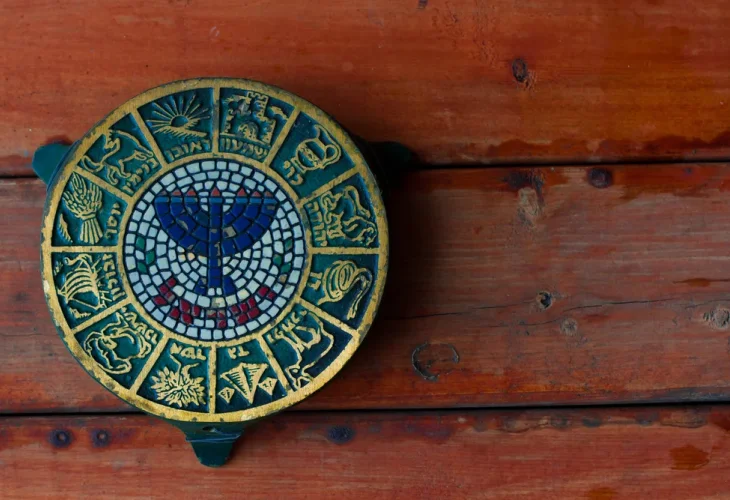The Enigmatic Quest for the Ten Lost Tribes: The Journey of Abraham Abulafia
Abraham Abulafia was determined to uncover the fate of a fierce warrior tribe, hoping to reunite the Ten Lost Tribes and bring forth redemption.
 (Photo: shutterstock)
(Photo: shutterstock)Saragossa, Spain. The year: 1260. Rumors were swirling within the Jewish community about the Land of Israel: after centuries under Christian and Muslim rule, a new and mysterious tribe had emerged from the East, from the mountains of Lalach and Habor!
A dreamy and thoughtful young man, sitting at the edge of the study hall, heard these tales and a spark lit up in his eyes. Surely these were the Ten Lost Tribes, reconquering the land to return it to us! His name was Abraham Abulafia, and he decided to act: he set sail for the Land of Israel.
Indeed, in those days, an unknown tribe from the East had captured the land. It was the Mongols, under the empire of Genghis Khan, the leader who unified the Mongolian tribes, not without imposing harsh laws. According to legends, he killed hundreds of people with his own hands, including his elder brother. He was probably not of the Ten Lost Tribes... but the legends glorified him as a great conqueror, and Abraham Abulafia was determined to investigate this fierce warrior tribe and discover the whereabouts of the Ten Lost Tribes, hoping their discovery would herald redemption.
For weeks, the ship rocked as it departed from Barcelona's port, finally docking on the shores of Acre in Elul of that year. Abraham disembarked, full of excitement to set foot in the Holy Land, yet a strange feeling enveloped him. On the distant horizon, he saw smoke rising, and horsemen occasionally galloping across the fields. War was rife in the land. Maybe in Catalonia, war could be imagined as a grand spectacle, but in reality, it was terrible and unbearable. There was no transport, no food, and no one to trust, with carts carrying the bodies of soldiers passing by. Foreigners were not welcomed.
At the same time, a decisive battle erupted in the Land of Israel – the Battle of Ain Jalut. On Friday, September 3, 1260, the Mongols arrived from the north. The cruel commander Hulagu Khan conquered Sidon, slaughtering all its inhabitants, passed by Acre like a storm, and set camp in the valley. From Egypt, Sultan Qutuz of the Mamluks advanced with 15,000 horsemen, and destroyed the Mongolian garrison. Acre was still under Crusader control, but they decided not to intervene, fearing retribution from the victor. Thus, the inhabitants of Acre watched in terror as the mighty battle unfolded in the heart of the Land of Israel.
The Mongols diverted eastward to the Valley of Beit Shean, gathering near Maayan Harod (Ain Jalut). Perhaps they wanted to assure their water supply, but that was a severe mistake for those unfamiliar with the land. The Mamluks galloped from the coast to Acre, then descended to the valley. They amassed at Mount Gilboa, refreshed by the cool air, while the Mongols were trapped in the sweltering valley. The sun was at the Mamluks' backs, blinding the Mongols. The Mamluks charged, roaring from the mountain, and the Mongols were slaughtered. This marked the end of Mongol rule in the Land of Israel.
Like other travelers, Abraham Abulafia was forbidden to leave the port, but during Shabbat, rumors reached him of the epic events. Immediately after Shabbat, he was placed on a ship back to Spain. He did not find the Ten Lost Tribes, but he developed a fervent longing for redemption and to bring it about at any cost. He left the study of philosophy and immersed himself in Kabbalah with Rabbi Baruch Togarmi. He delved into the Book of Creation, writing various commentaries. Thus, a decade later, in 1270, he felt a prophetic spirit stir within him. He began writing numerous books containing complex calculations, Kabbalistic ideas, and Gematria. The voices in his head told him to meet with the Pope to finalize the redemption of Israel. He wandered through Europe, gathering many followers, and knocked on the gates of the Vatican in Rome, where he was told that Pope Nicholas III was vacationing in Soriano, and should he dare to approach, he would be burned as a heretic.
Unfazed, Abulafia traveled with his followers to Soriano, and that very night, the Pope died. Abulafia and his followers saw it as a divine sign, declaring him as Messiah and prophet. The sages of the era sent letters to the great Rabbi Solomon of Barcelona, the Rashba, asking how to deal with him. The Rashba replied that although his teachings contained interesting insights, they were mixed with falsehoods, and he was neither Messiah nor prophet. He advised distancing him from society to prevent disaster upon the Jewish community in Spain. Most Jews in Spain adhered to the Rashba's guidance, rejecting Abulafia. He retreated to a remote island, where he lived until his death, causing little further harm.

